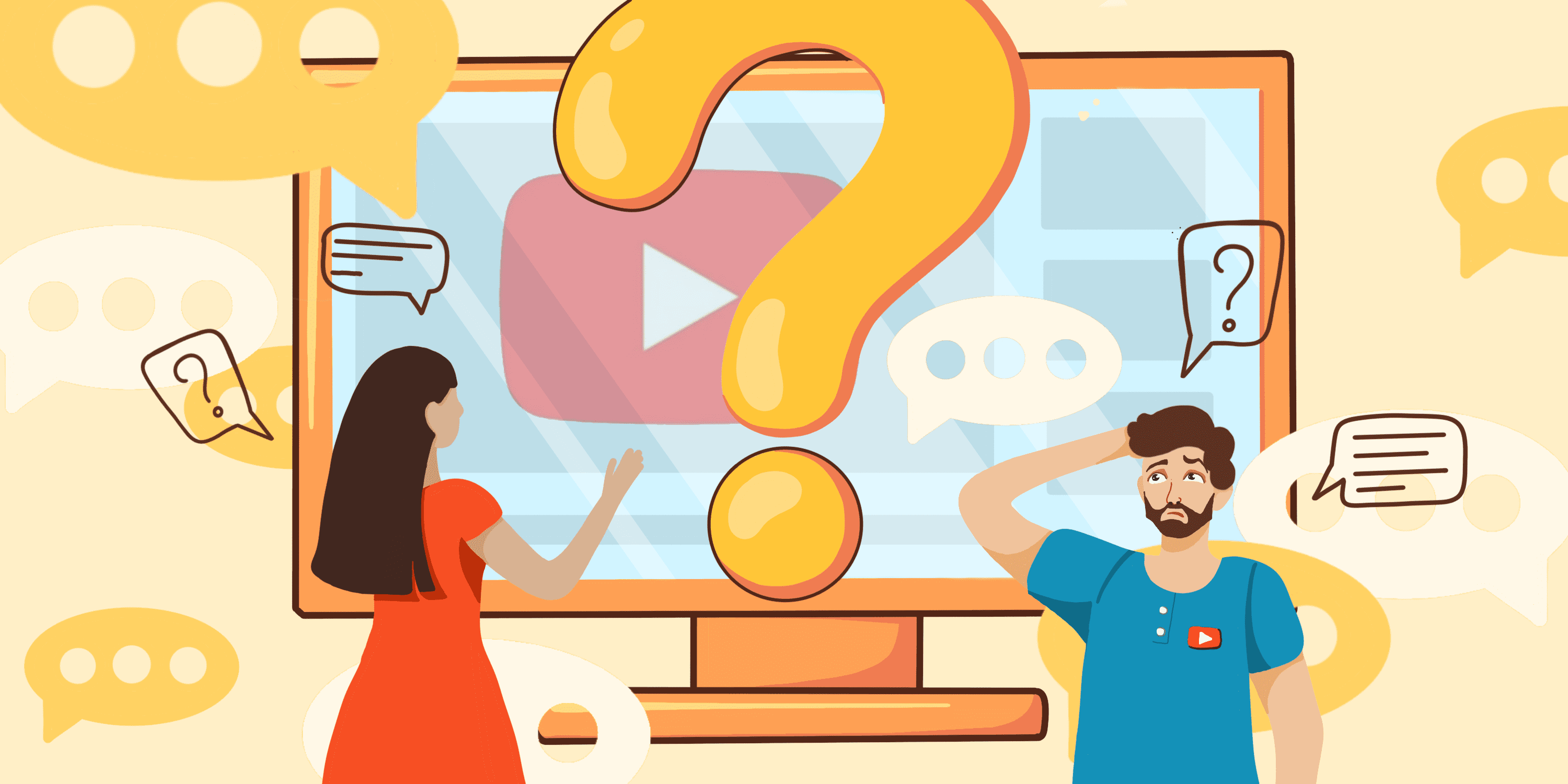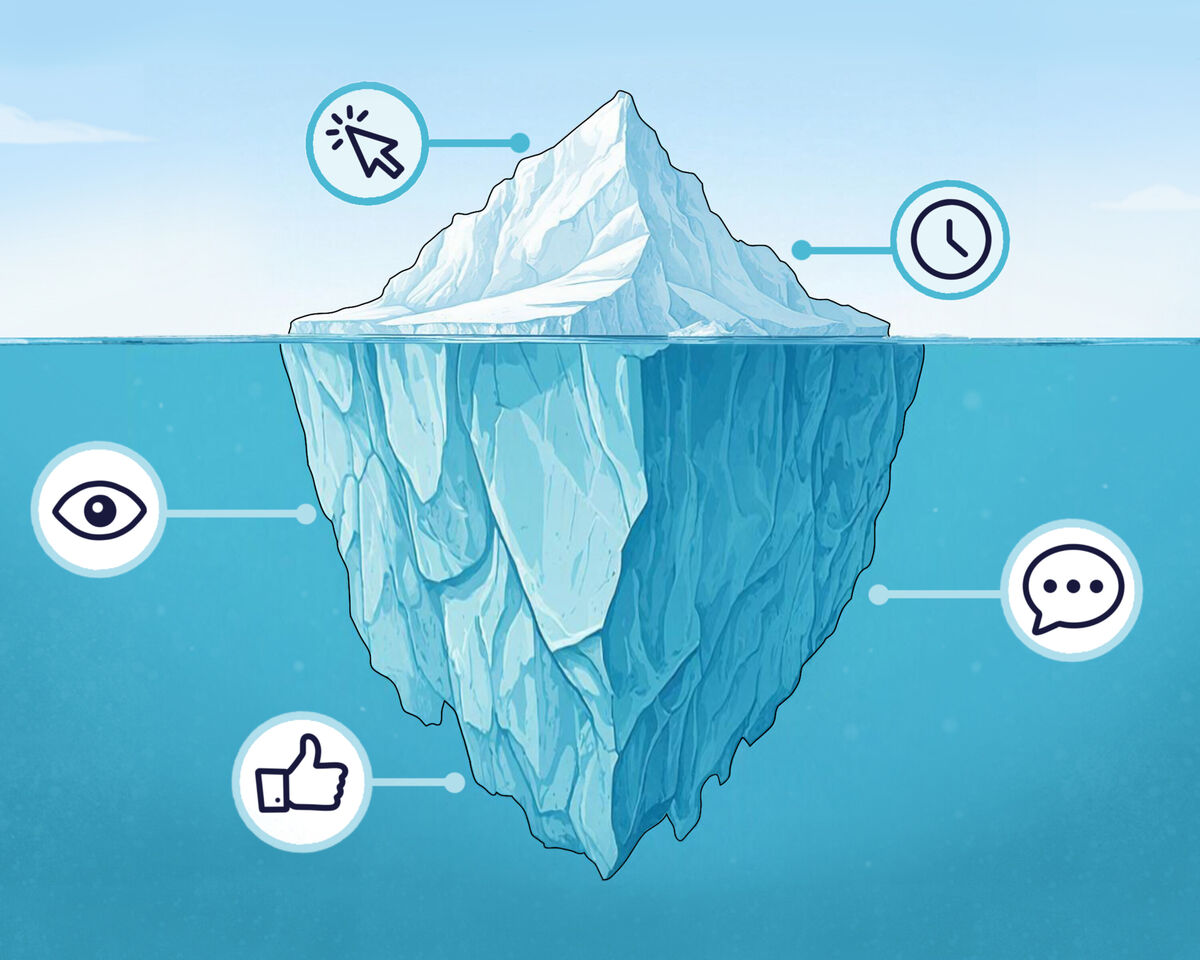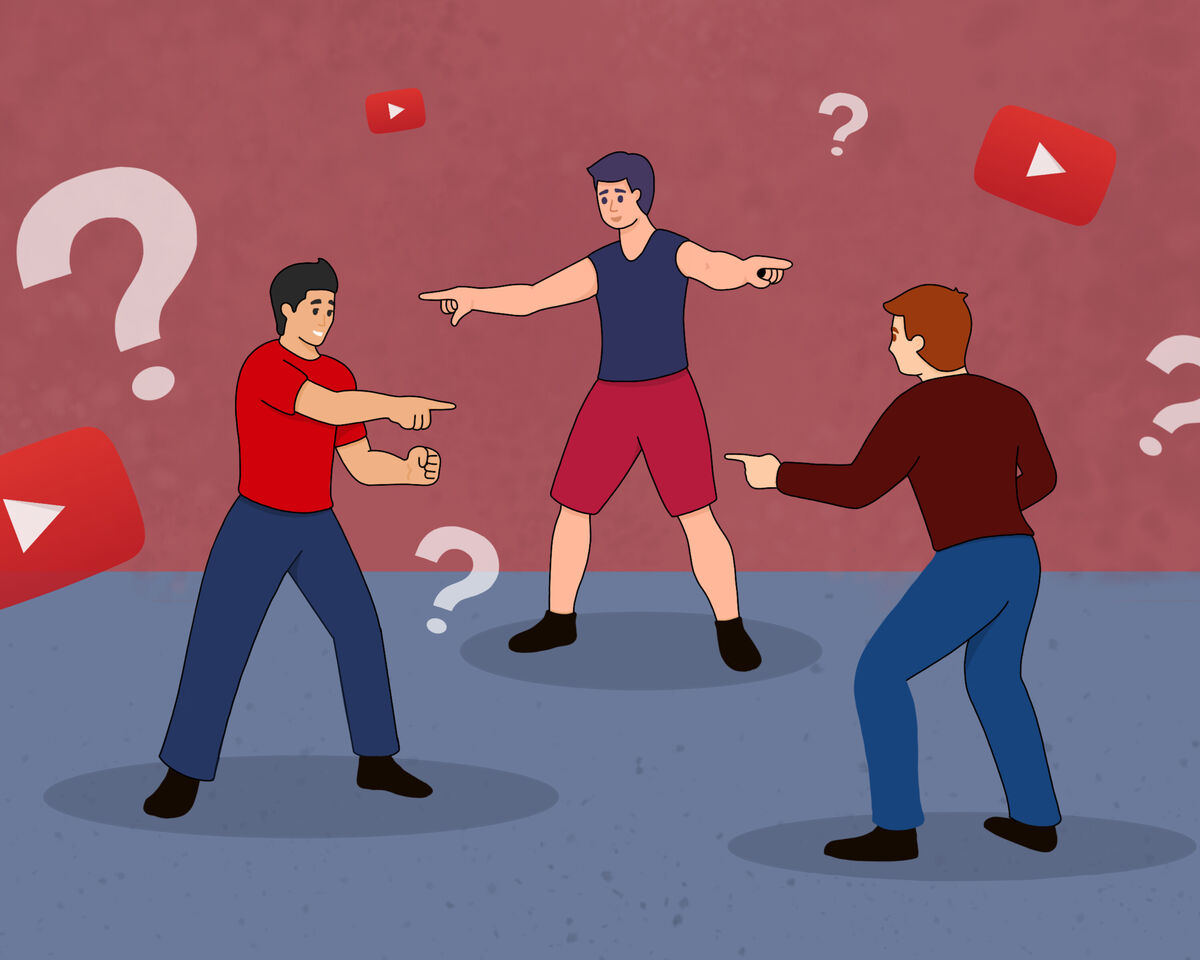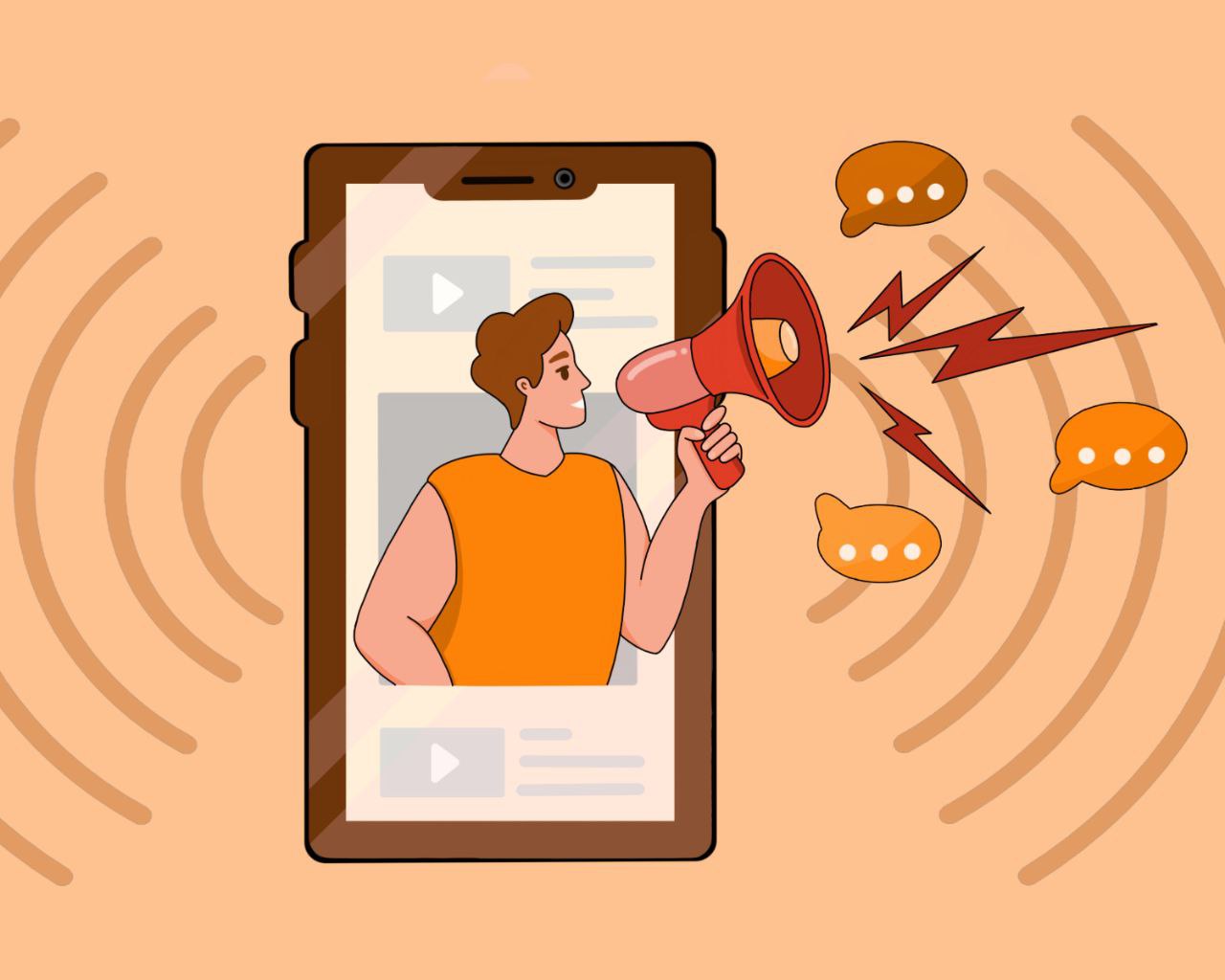Stop Asking the Wrong Questions About YouTube? Common Vlogging Mistakes
Admit that at least once you questioned yourself like: “Why is my channel not growing?” or “How much will YouTube pay me?” It’s not wrong to ask these questions, but you have to think differently. In this article, we will analyze all the things that cause YouTubers to fail.
Why are there no views on my channel? Why no subs on my channel? Why is the channel not growing?
These are some of the top questions that creators are asking. These questions are asked out of frustration. Most likely, your channel does not have “zero” subscribers, as you claim, but just a few. And there is activity, but just not the level you desire.
Let's make it clear: a dozen subscribers and views on a new channel is good. At the very beginning of your journey, the videos will not gain many views, because it takes time for YouTube to understand which audience to recommend you to. It will take a while so you must have patience!
In order to pump up the channel and gain your first hundred subscribers without launching paid promotion, on average it takes from a month to six months. It depends both on the level of the videos themselves on the channel, and how well they are designed: not only the quality of the header and thumbnails but, of course, search engine optimization (SEO) matters a lot.
Evaluating the results of channel growth for even a whole month is biased. A month on YouTube is a very, very short period, it’s the minimum even for large channels to reveal some data.
If you've noticed, YouTube Studio's Analytics tab defaults to the last 28 days for which it displays stats. That is, 28 days is our minimum by which to evaluate results.
Now you may have thought: "Then you need to ask the question more clearly, with your personal statistics." And this is wrong. Let's take a simple example; we often find such comments under videos.
“I have 300 subs on my channel, which I made six months ago. CTR on commercials is on average 20%, but the viewing watch time is 10 seconds. Is this good or bad?"
Answer: if the stats grow, it is always good. If at the end the author asked what was wrong with his videos, and why they are poorly watched, then one could make an assumption. For example, maybe he was using clickbait thumbnails and, most likely, completely meaningless videos. CTR indicates a decent number of clicks, while the view watch time tells us that the video disappoints viewers from the first seconds. But even these answers will not provide us with the complete picture. It is necessary to analyze the entire channel.
So, asking questions is good. But it's important to ask the right questions. You can’t simply look at the sky and tell what the weather will be tomorrow. To do this, meteorologists collect statistics for previous years, and forecasters calculate the trajectories of air particles. Analytics and details are the key to success.
“How to get subscribers? How to promote a channel? How to become popular on YouTube?
These questions have been asked endlessly by YouTubers even by those who have not yet managed to upload a single video. It's funny when you read these comments under educational videos on how to gain subscribers, promote a YouTube channel, and become popular. The answer is, number one: scroll up and try to watch the videos.
Unfortunately, no matter how sad it may sound, these questions speak of inattention or that a person does not even plan, but simply expects they can suddenly become popular. Unfortunately, a lot of new YouTubers think success comes overnight.
If you translate this question into any other niche than development on YouTube, it will look something like this: "How to become an Olympic champion." Do you know the answer to this question? Of course, "you need to work hard, train, be consistent, have great coaching and natural talent will help a lot ." Even this answer barely scratches the surface of what it takes to succeed. However there are a universal set of factors, daily activities, brain processes, and life habits that you must build to put you on the right path to success.
If you really want to understand what techniques and methods are currently relevant on the YouTube platform, you should ask your question differently: “What promotion methods are popular and/or work on YouTube today?” This is also a fairly common question, but a meaningful answer can be obtained.
Another issue is that these questions often lead to questions about bypassing algorithms. This is why you will see videos that discuss YouTube platform “hacks” and magical shady tactics for quickly gaining subscribers and views. However these strategies will usually do more harm than good to your channel.
There is no secret way to trick YouTube into making you Popular. There will always be those snake oil salesmen who will provide clickbait and pretend to know how to get around the system. But the truth is there is no way to bypass YouTube’s system. The hard truth is that you will need good content with a solid marketing and promotion plan.
Is it worth starting a YouTube channel? What to make a channel or video about?
Let’s continue on the topic of shifting responsibility to anyone but ourselves. Let me give you an example of what we mean:
Do you think your friend should get a dog? How about taking out a loan?
Before you provide the answer to the above - please stop. These friendly recommendations will clearly place some responsibility on your shoulders. Your friend took out a loan and couldn't pay it back.They bought a dog for $1,500 bucks and it ran away. Who is guilty? Your friend would say - “but you told me…”
If you do not know what to make a channel or video about, if you are not sure at all whether you need a channel, then there is only one answer - you alone need to make a decision.
From the experience of our seasoned team that has been working with YouTube and vloggers for over ten years, people who ask these type of questions do not want to run a channel and they do not want to shoot videos either. They are not ready for the inevitable difficulties, the long process of promotion, and so on. If you don't have a burning desire, you should not start a YouTube channel.
Question to the audience: do you think Neil Armstrong was sitting at home in front of his family and asking: “Listen, I don’t know if I should become an astronaut or not”? Or Lady Gaga was sitting on the forums of musicians: “People, help me, I don’t know what to write a song about”?
Why people don't want to actually start channels
The fashion for vlogging creates the illusion of easy money and popularity. We look at a couple of big video makers that give us that feeling, and everything seems to be cool, easy, and effortless. Therefore, people want to ride the wave and urgently decide to start a YouTube channel. They just see the end game and want to be rich, famous, and carefree like their favorite YouTuber.
But that is not the reality of life as a creator. Vlogging may just not be for you. Lack of perseverance, for example, or simply being uninteresting can inhibit you from being successful on YouTube.
Another important thing: in order to become popular, you need to do at least something. It’s important and not everyone understands this. At the very least, you have to get people interested in you as a personality. However, not even this is as simple as you may think. Most of these "interesting and charismatic" YouTube personalities have producers and a whole team that helps them in the promotion.
To conclude: don't torture yourself with activities you don't really like. Do something that really makes you happy.
How to phrase questions like this correctly so that the community does not take your curiosity for lack of maturity?
You should develop your idea and ask a more specific question. For example: Do you think the review format is popular now in the fishing niche? If I make a series of videos with fishing gear reviews, will people watch this?
If you put it like this, we can at least understand what exactly is at stake, and what interests you as the creator. Although if such a creator had previously studied his competitors and topics that receive a response from the audience, he wouldn’t even have to ask this question.
You can also try to search different channels or ask the creator to make a video with interesting ideas for videos, and popular, trendy formats. But no creators should ask others to make important creative decisions that will affect their own life and direction on YouTube.
How often should you post videos? How many videos should you upload per channel per day?
An ambiguous question, the answer to which cannot be provided instantly. Again, at least minimal analytics of the niche, the channel itself, the content on it, and the desires of the viewer are required.
We talked about the frequency of uploading in a separate video. Let's look at some of the main points.
- Upload as many videos per week as you can without losing quality videos. It may be tedious but it will help build your catalog.
- Do this systematically, that is, regularly - on the same days, at the same time, at least approximately on the same schedule. This builds the habit of viewers watching your videos.
- Use channel analytics to formulate a specific schedule. With it, you can know about the interests of the audience, as well as about the comfortable time for watching videos.
- You should have as many videos as possible so that during a certain time interval between them viewers do not forget about your channel or that you did not make them uninterested in the content.
- Remember that each new video will "poach" all the traffic to itself. Therefore, you should not post all the videos at once on the same day and at the same time. We recommend uploading no more than one video per day.
- If we are talking about uploading a video once a week or once a month - you might as well upload at least once a year. Don't expect a lot of people on your channel and keep in mind it will grow extremely slow.
The schedule of each individual channel is based on factors that need to be studied and analyzed. Looking up at the sky and guessing will not work, because there is no universal recommendation. Start from your inner desires and capabilities, and study the audience. Treat analytics as your friend.
“Why did YouTube ban the video or channel?”
Let's start with the fact that if YouTube deleted or banned a video or your channel, all information about violations is sent to your email. The email address that is connected to your Google account. Check the Spam folder, and carefully study the contents of the trash can - the moderators are not going to hide anything from you.
Not a single person can answer this question for you because only you have access and all the information is stored only by you. The rest is just speculation. The most optimal answer to the question “why” is because you violated the YouTube Terms of Use. If you want to know what was violated? That’s probably where you should start looking.
We came across such a case: the creator did not understand why YouTube was blocking him. And after a review by our team, it turned out that he uploaded five identical looped videos every day, sincerely not understanding why he was blocked. The result was that YouTube deleted the video and blocked the entire channel. The creator had received an email from YouTube, in which it was written that his actions were spam and fraud, but this turned out to be an insufficiently weighty argument for the video uploader.
If a similar situation happens to you, and the platform regulations are not a sufficient argument, unfortunately, we can’t help you. YouTube is a platform that has a consistent set of rules. You press the Agree button upon registration. Therefore you must comply with their set of rules.
Another question that makes you want to urgently take some sedatives: “If I put the name of the track under the video, will YouTube send me a complaint and block monetization?”
Let's consider the above comment as you read the following anecdote: you bought a bike, and someone came up and wrote their name on it. Did the bike stop being yours? In this case, the authors of the tracks either let you "ride your bike" for a separate fee - buying a license to use the song - or ride a bike without wheels, since you don't want to pay.
There are musicians who are willing to allow you to use their music. But then you must follow their rules on how their music is used and attributed back to them. Also, do not be surprised if the musician changes his mind and at some point cancels free usage. It’s his right.
The Content ID system that controls the use of copyright materials on the YouTube platform is automated. Therefore, it catches all violators and issues fines in the form of complaints. However, if you have a license, you can always dispute this complaint.
Bonus questions from subscribers
“Why did YouTube delete my views or subscribers?”
The platform often cleans up, during which views from bots and cheats are deleted. The bots or subscribers acquired by illegal services are also removed from the platform. Still, at some points, YouTube may remove repeated views from one account, so sometimes it seems to content creators that YouTube illegally removes their honestly earned views. This is not the case, bot creators may repeatedly use their bots on random videos to appear more authentic.
"Why am I not seeing some analytics data?"
Most often this is because the channel is still too new. YouTube simply has nowhere to get some analytics data. Therefore, if your channel is only a month old, and has only a couple of subscribers, you should wait until the channel has matured.
"How much does YouTube pay?"
And again, this is such a general question, because the cost of viewing each video is different. It all depends on the niche, the popularity of the topic, the specific content creator, the number of subscribers, how long the content was viewed, and many other factors.
General trends can be identified. For example, it is known that educational content earns more than entertainment content. The logic is simple: the more mature and financially independent your audience is, the more expensive advertising it displays. However, it is unlikely we can provide exact figures.
"Why can't I find my videos/channel in the YouTube search?"
YouTube has a whole section in the Help that is dedicated to this issue.
If you've recently created a channel or video, updated a video, or changed your channel name, it can sometimes take a few days for those changes to show up in the YouTube search. If the deadlines are up - well, it's YouTube. Algorithm rebuilding operations can take much longer than expected.
As for the search bar, do not forget that when you enter a query or even the full name of your video, channel, or playlist, YouTube still ranks them according to relevance in the search results, and not by matching words.
Your content may not appear at the top of search results if:
- The channel name is a common expression that often appears in video titles.
- There are many channels on YouTube with the same name.
- The channel was created quite recently.
- The channel name uses vocabulary that is not suitable for all categories of viewers.
So, let's sum things up. The ability to ask questions correctly is 50% of getting good advice. The other 50% is on the side of the respondent. So always remember to put some thought into your question and phrase it correctly. Good luck on this difficult journey!





